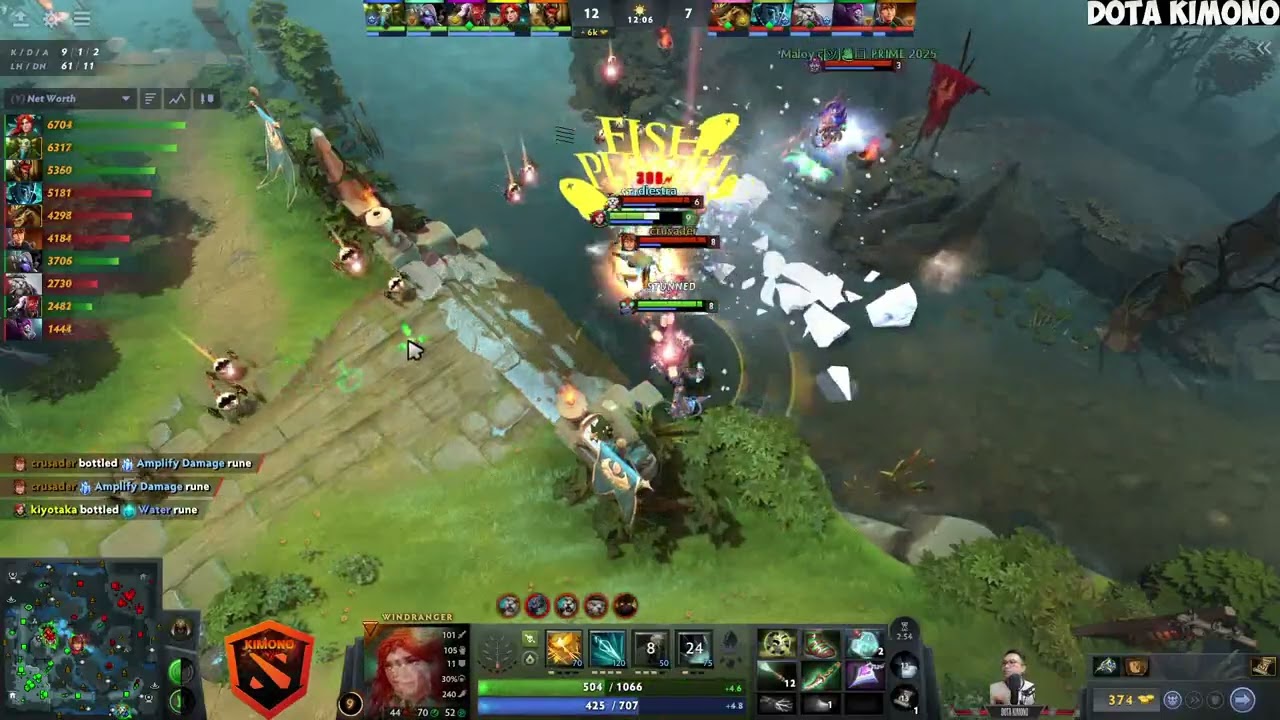The road to Dota 2`s most prestigious tournament, The International, is notoriously challenging. Teams battle through qualifiers, endure rigorous training, and strategize for months to earn their spot. Yet, for all the in-game prowess and tactical brilliance, sometimes the greatest hurdles lie far outside the digital arena. Gleb “Kiyotaka” Zyryanov, the accomplished mid-laner for Aurora Gaming, recently experienced this firsthand, encountering an unexpected bureaucratic snag that nearly derailed his journey to The International 2025.
A Routine Layover Turns Into a Three-Hour Detention
Kiyotaka`s journey to Hamburg, Germany, the host city for The International 2025, began with his team flying through Munich. What should have been a standard transit through a major European hub quickly escalated into an administrative nightmare. At passport control, Kiyotaka was stopped. The reason? His Italian visa, a document that, while valid, was apparently not “activated” by an initial entry into Italy or presented in a manner that satisfied German border officials for direct entry into the Schengen area.
“We were flying as a group of five through Munich. And in Munich, at passport control, I was stopped because I had an Italian visa,” Kiyotaka recounted. “They kind of held me up for about three hours.”
Three hours is an eternity when a connecting flight, and a championship dream, hang in the balance. The delay wasn`t due to any wrongdoing, but rather a technicality in international travel regulations, a detail easily overlooked by even seasoned travelers. The border officials, after their lengthy review, eventually released him with a nod and a “Good luck at the tournament,” a sentiment that, while well-intentioned, likely felt somewhat ironic at the moment.
The Missed Connection and The Overnight Stay
By the time Kiyotaka was cleared, his scheduled connecting flight to Hamburg had long departed. Stranded in Munich, he was left with the task of re-booking his travel. An initial attempt to secure a quick alternative revealed the next flight was full, and subsequent options were either impractical (a 6:40 AM flight) or unavailable through the airport`s re-booking services.
This is where the organizational structure of professional esports teams truly shines. Aurora Gaming quickly stepped in, ensuring their star player wasn`t left adrift. They arranged for Kiyotaka to stay in a hotel near the airport, providing a much-needed respite after the stressful ordeal. The following morning, the organization secured him a new flight, allowing him to finally depart for Hamburg at 11:00 AM.
“The organization booked me a hotel near the airport; I chilled there and flew out at 11:00 AM,” Kiyotaka confirmed. “It`s not my most pleasant experience with flights.”
While his teammates had arrived in Hamburg on September 1st, Kiyotaka finally joined them on September 2nd, a testament to both his resolve and the swift logistical support from his team.
Beyond the Game: The Unseen Pressures of Professional Esports
Kiyotaka`s experience serves as a stark reminder that the life of a professional esports player isn`t solely about high-level gameplay and lucrative prize pools. Beneath the glitz and glamour of international tournaments lies a complex web of logistical challenges, from visa applications and travel arrangements to managing personal well-being under immense pressure. This particular incident, while resolved, underscores the importance of meticulous planning and robust support systems that professional organizations provide.
It`s a world where a minor administrative detail can cause significant stress, potentially impacting a player`s mental state just before the pinnacle event of their competitive year. Imagine preparing for months, honing every last micro-skill and team coordination, only to face an unexpected three-hour interrogation and miss your flight due to a passport stamp. It’s a level of off-field complexity that traditional athletes, often traveling with dedicated support staff and established diplomatic channels, might encounter less frequently.
As Kiyotaka now settles into Hamburg, ready to compete for the Aegis of Champions, his brief but stressful detour through Munich will likely become another anecdote in the rich tapestry of esports lore. It’s a story not just of travel woes, but of resilience, adaptability, and the sometimes-unseen efforts required to bring the world`s best talent to the global stage.

